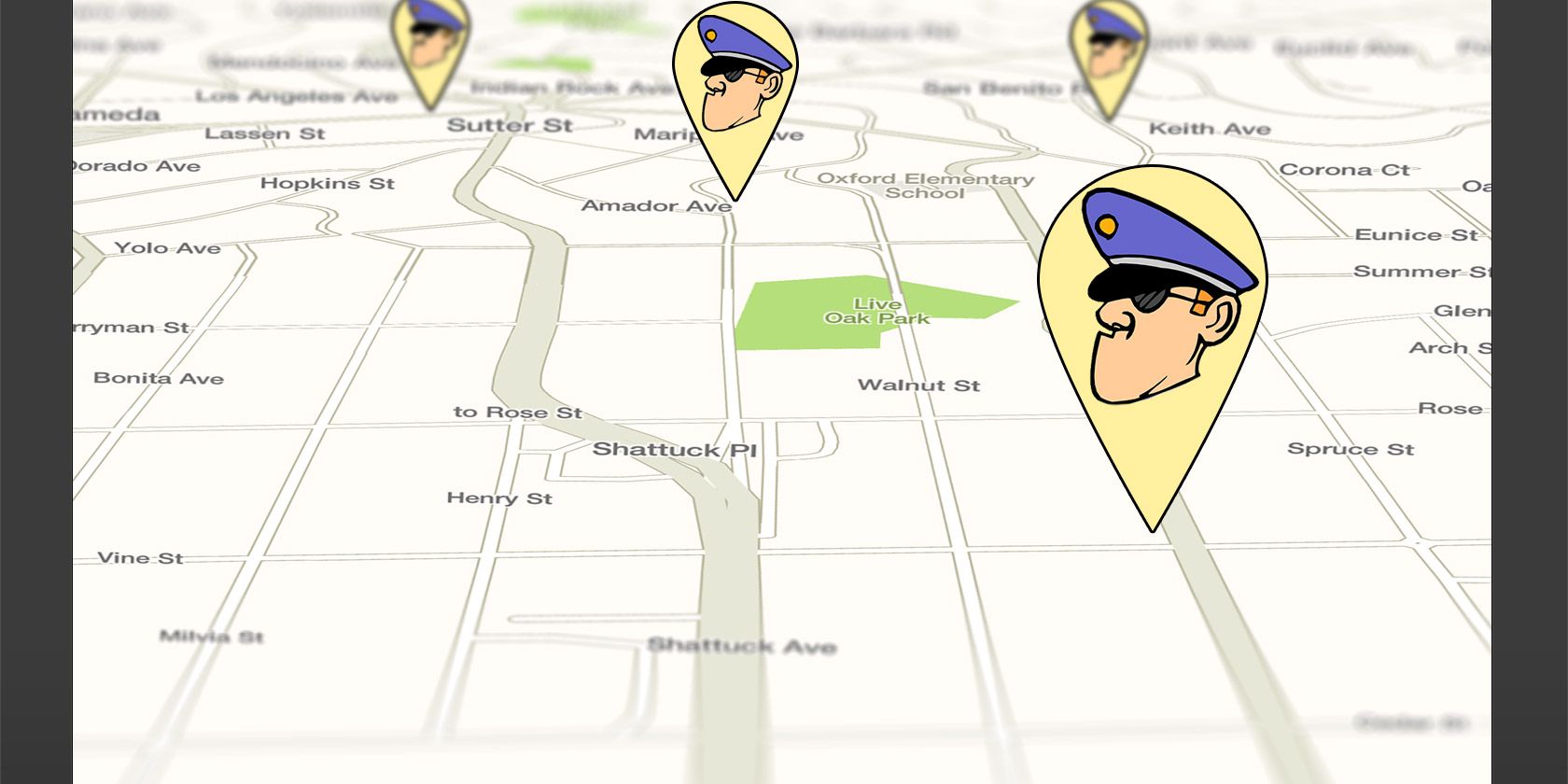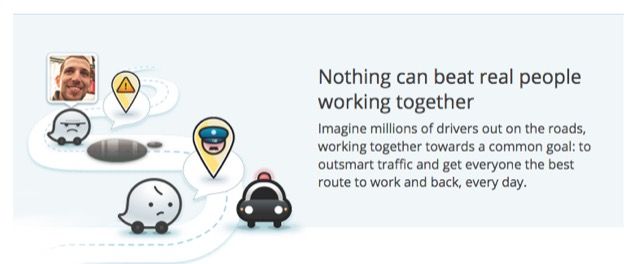An app can "be misused by those with criminal intent to endanger police officers and the community", claims a letter sent to Google last week.
The app in question: the social navigation app, Waze. The letter, from LAPD police chief Charlie Beck, caused a stir last week by asking Google to remove the police tracking feature – mostly used by drivers hoping to avoid speeding tickets.
Amongst the criticisms levelled at Waze's police tracking feature, Beck argued that it puts officers in danger. Is there any merit to this claim?
What Is Waze, And What Does It Do?
Waze is an app that can make your commute better. Waze users are able to report a variety of issues on the roads, including traffic jams, breakdowns and, yes, police officers. Other app users can react accordingly, forewarned that something is happening on the road ahead.
Traffic jam? Take another route. Break down? Help out. Police officer? Slow down.
Waze was originally developed as a competitor to Google Maps and Apple Maps (which is now much improved) but was bought out by Google. Surprisingly, Google has let the app continue as is, rather than shutting it down like they normally do – case and point, my favourite Mac email app, Sparrow, which is now dead as a dodo.
Waze has more than 50 million users around the world, many of whom are in the United States.
Why Do Police Think Waze Is Dangerous?
Beck contends that Waze can be used to track police officers. He argues that people who want to harm officers could then use it to find them. The recent shooting of NYPD officers Rafael Ramos and Wenjian Liu obviously makes this a sensitive issue for police officers and an emotionally compelling argument.
Writing in the Atlantic, however, Conor Friedersdorf takes it apart. Friedersdorf points out that there are many easier ways for people to find on-duty police officers than Waze.
"Cops tend to congregate at police stations. They make regular appearances at the courthouse. They drive around town in marked cars wearing uniforms and congregate informally in the same parking lots day after day", he argues. "If someone intent on locating a police officer still found themselves unable to do so, which strains credulity, there is a widely known, pre-mobile phone app called 911 that anyone can use, anywhere in any American city, to summon police immediately to any location."
I live in Ireland. Here we have a fundamentally different relationship with the police force. Since the early 20th century they've been, for the most part, entirely unarmed – and this creates a different dynamic. Similarly, because guns aren't as widely available for purchase, police officers don't really need to fear the general public. So I was entirely prepared to see this from the officers' point of view, however, I've found that difficult.
Friedersdorf isn't the only person to point out flaws in Beck's arguments. In a recent NPR piece , Dave Maass of the Electronic Frontier Foundation — an organisation whose work I've used before — explains that police spotting is nothing new.
"Waze is just basically the new CB radio," says Maass.
Waze themselves have shot back. They take issue with the very terms of the debate. While Beck claims that Waze can "track" police officers, the team behind the app point out that it can only show the general area where a police officer has been seen. If they move on, the mark stays in the same place until someone updates it. Not a particularly reliable method for anything more than warning others about speed traps.
The True Danger of Waze
Using your mobile phone while driving is dangerous. It's illegal to use your phone — whether that's texting, using apps or even making phone calls — while driving in much of Europe, including Ireland. In the US the situation is rapidly changing: while you might not go to jail for using your phone, it is starting to be considered a crime in different States.
While Waze is unlikely to get a police officer in trouble, if they catch you using it, you very well could be facing a fine.
So What's It All About?
As much as I agree with Friedersdorf's take on the quality of the arguments against Waze, I disagree with a part of his conclusion. He feels that "some of the opposition to Waze by police brass is grounded in the fact that, when its automated voice announces that there's a cop car ahead, drivers slow down" and that, "If the mottos on the sides of police cars stated the whole truth, they'd proclaim, 'To protect and serve–and, during down time, to generate revenue for the city.'"
While it's true that speed traps generate revenue, personally, I feel the arguments against Waze stem from genuine concern by police officers. Is their concern misplaced? Yes, but the relationship between the US public and police officers has been tainted by several high profile incidents in the past year. The backlash against Waze's police spotting feature stems from this tension.
Removing the police tracking feature from Waze won't do anything to make police officers safer. What I think the police should be doing instead of writing letters to Google is far far beyond the remit of this article.


